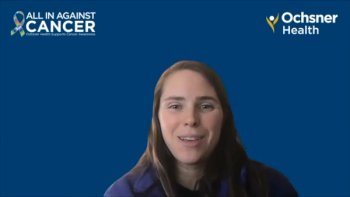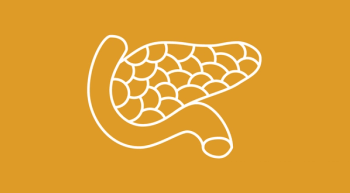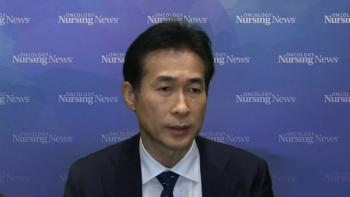
Azenosertib (ZN-c3) demonstrated activity as a single agent in heavily pretreated patients with platinum-resistant, cyclin E1-positive ovarian cancer.

Azenosertib (ZN-c3) demonstrated activity as a single agent in heavily pretreated patients with platinum-resistant, cyclin E1-positive ovarian cancer.

Inavolisib in combination with palbociclib and fulvestrant improved overall survival compared to palbociclib and fulvestrant alone in patients with PIK3CA-mutated, HR-positive, HER2-negative advanced breast cancer.

Patients with relapsed ovarian cancer who had germline or somatic BRCA mutations saw greater OS with olaparib, according to data from the LIGHT trial.

Sintilimab with neoadjuvant chemoradiotherapy enhanced pCR rates in resectable, locally advanced esophageal squamous cell carcinoma.

The association of CAR T-cell therapies with second primary cancers warrants the development and examination of mitigation strategies for these toxic effects.

The combination of tislelizumab, irinotecan, paclitaxel, oxaliplatin, and 5-FU/leucovorin demonstrated promising efficacy and manageable safety in gastric and GEJ cancers.

Erica S. Doubleday, MS, FNP-C, BSN, RN, outlined upcoming approvals and care options for providers to expect in the breast cancer space.

The addition of trastuzumab and pertuzumab to chemotherapy was associated with increased toxicity in patients with HER2-positive gastric cancers enrolled in the INNOVATION trial.

La-Urshalar Brock, FNP-BC, CNM, RNFA, spoke about the oncology nurse’s and APP’s roles in managing chemotherapy-induced peripheral neuropathy in patients with breast cancer.

Managing weight loss with telotristat ethyl in patients with metastatic pancreatic ductal adenocarcinoma may improve survival, although further research is needed.

T-DXd has received FDA approval for the treatment of unresectable or metastatic HR+, HER2-low/-ultralow breast cancer in patients whose disease progressed on prior endocrine therapy in the metastatic setting.

Phone calls to follow up with patients with locally advanced esophageal squamous cell carcinoma while at home may reduce AEs like stomatitis before the first outpatient clinic visit.

Phase 2 findings show clinical responses and improved survival with evorpacept in patients with HER2-positive gastric/gastroesophageal cancer.

While ctDNA positivity was linked to worse overall disease-free survival (DFS) in stage III resected colon cancer, it was associated with significantly improved DFS with celecoxib compared to placebo.

The phase 2 FDZL-001 trial showed high overall survival and progression-free survival rates with camrelizumab plus Nab-POF in patients with gastric/GEJ cancer.

The EA2186 trial was the first study specifically designed to test chemotherapy in older adults with advanced pancreatic cancer who were considered vulnerable.

Analysis of the NAPOLI 3 trial showed that lower doses of liposomal irinotecan or oxaliplatin did not reduce survival in patients with pancreatic ductal adenocarcinoma.

Susumu Hijioka, MD, discussed how a lower dose of everolimus may help address certain adverse events like oral mucositis and hypoglycemia.

The 2-year benefit of bevacizumab in colorectal cancer may explain why survival benefits are seen in studies with two-year, but not longer, follow-ups.

First-line nivolumab plus ipilimumab was shown to be effective and well-tolerated in patients with unresectable hepatocellular carcinoma in the CheckMate 9DW study.

Aspirin reduced disease recurrence in patients with PI3K-mutated colorectal cancer, underscoring the value of early genomic testing.

Cabozantinib prolonged PFS compared to placebo for patients with extrapancreatic NETs starting in the GI tract in a subgroup analysis of the CABINET trial.

Preoperative sintilimab with chemoradiotherapy boosted pathological complete response rates in patients with resectable, locally advanced esophageal squamous cell carcinoma.

Findings from this survey also demonstrated that 23% of providers were comfortable with interpreting biomarker testing results for treatment decision-making.

Treosulfan plus fludarabine was approved by the FDA for children and adults with AML or MDS before allogenic hematopoietic stem cell transplantation.

The phase 3 RATIONALE-306 study found no significant difference in overall survival benefits from tislelizumab plus chemotherapy between early and late responders with ESCC.

Five-year data shows lasting benefit for patients with advanced gastroesophageal cancers treated with nivolumab and chemotherapy.

SHR-1701 plus CAPOX chemotherapy reduced treatment delays and dose reductions compared with placebo plus CAPOX in HER2-negative gastric/GEJ cancer.

Nivolumab plus chemotherapy improved long-term survival in Chinese patients with advanced gastric, GEJ, or esophageal cancer.

Oncology nurses can provide patients with information regarding the risks and benefits of these medications in cancer treatment.